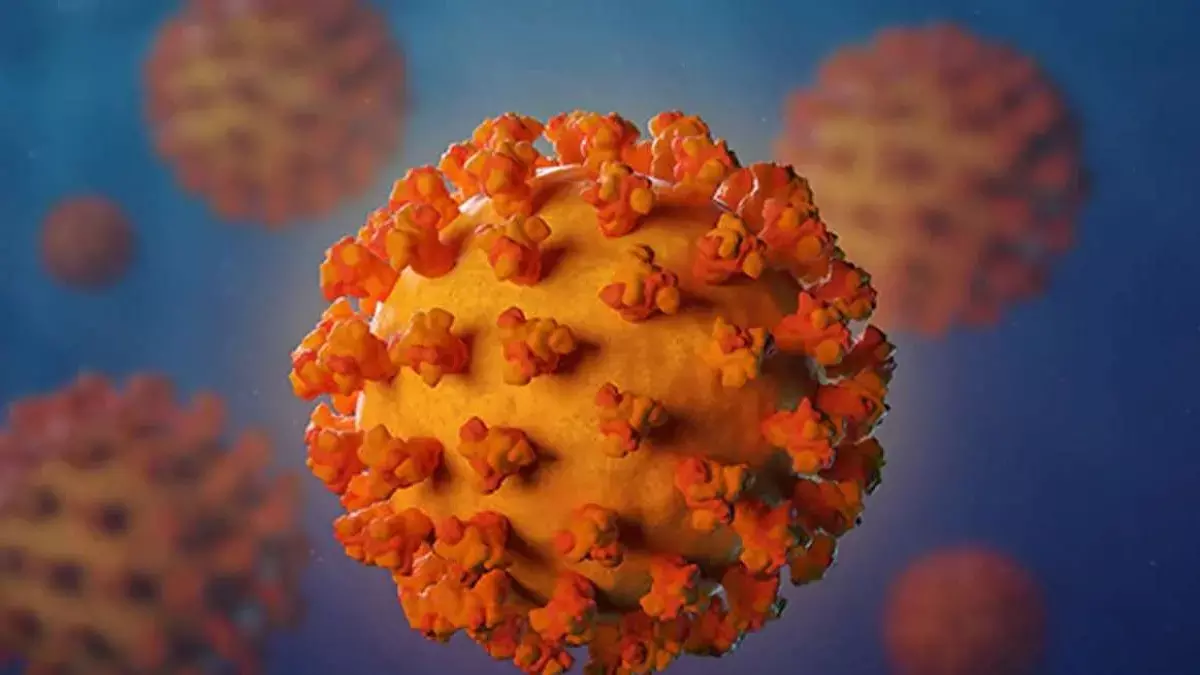- Home
- Medical news & Guidelines
- Anesthesiology
- Cardiology and CTVS
- Critical Care
- Dentistry
- Dermatology
- Diabetes and Endocrinology
- ENT
- Gastroenterology
- Medicine
- Nephrology
- Neurology
- Obstretics-Gynaecology
- Oncology
- Ophthalmology
- Orthopaedics
- Pediatrics-Neonatology
- Psychiatry
- Pulmonology
- Radiology
- Surgery
- Urology
- Laboratory Medicine
- Diet
- Nursing
- Paramedical
- Physiotherapy
- Health news
- Fact Check
- Bone Health Fact Check
- Brain Health Fact Check
- Cancer Related Fact Check
- Child Care Fact Check
- Dental and oral health fact check
- Diabetes and metabolic health fact check
- Diet and Nutrition Fact Check
- Eye and ENT Care Fact Check
- Fitness fact check
- Gut health fact check
- Heart health fact check
- Kidney health fact check
- Medical education fact check
- Men's health fact check
- Respiratory fact check
- Skin and hair care fact check
- Vaccine and Immunization fact check
- Women's health fact check
- AYUSH
- State News
- Andaman and Nicobar Islands
- Andhra Pradesh
- Arunachal Pradesh
- Assam
- Bihar
- Chandigarh
- Chattisgarh
- Dadra and Nagar Haveli
- Daman and Diu
- Delhi
- Goa
- Gujarat
- Haryana
- Himachal Pradesh
- Jammu & Kashmir
- Jharkhand
- Karnataka
- Kerala
- Ladakh
- Lakshadweep
- Madhya Pradesh
- Maharashtra
- Manipur
- Meghalaya
- Mizoram
- Nagaland
- Odisha
- Puducherry
- Punjab
- Rajasthan
- Sikkim
- Tamil Nadu
- Telangana
- Tripura
- Uttar Pradesh
- Uttrakhand
- West Bengal
- Medical Education
- Industry
PCT and CRP, not reliable biomarkers for detecting secondary infections in COVID-19 patients: Study

Netherlands: The inflammatory biomarkers CRP and PCT show a rebound increase upon cessation of dexamethasone in critically ill COVID-19 patients potentially leading to false-positive findings, finds a recent study in the journal Critical Care. Futhermore, the use of immunomodulatory treatment with tocilizumab and dexamethasone considerably reduces the value of CRP and PCT for detection of secondary infection in COVID-19 patients.
Previuosly, procalcitonin (PCT) and C-reactive protein (CRP) were shown to have value for the detection of secondary infections in critically ill COVID-19 patients. However, the value of these biomarkers have now become unclear with the introduction of immunomodulatory therapy.
With the above background, Peter Pickkers, Radboud University Medical Center, Nijmegen, The Netherlands, and colleagues aimed to investigated PCT and CRP kinetics in critically ill COVID-19 patients treated with dexamethasone with or without tocilizumab, and assessed the value of these biomarkers to detect secondary bacterial infections in a prospective study.
The study included 190 critically ill COVID-19 patients. They were divided into three treatment groups: no dexamethasone, no tocilizumab (D−T−), dexamethasone, no tocilizumab (D+T−), and dexamethasone and tocilizumab (D+T+).
Serial data of PCT and CRP were aligned on the last day of dexamethasone treatment, and kinetics of these biomarkers were analyzed between 6 days prior to cessation of dexamethasone and 10 days afterwards.
The D+T− and D+T+ groups were subdivided into secondary infection and no-secondary infection groups to analyze differences in PCT and CRP kinetics and calculate detection accuracy of these biomarkers for the occurrence of a secondary infection.
Key findings of the study include:
- Following cessation of dexamethasone, there was a rebound in PCT and CRP levels, most pronounced in the D+T− group.
- Upon occurrence of a secondary infection, no significant increase in PCT and CRP levels was observed in the D+T− group.
- Although PCT levels increased significantly in patients of the D+T+ group who developed a secondary infection, this rise was only apparent from day 2 post-infection onwards.
- CRP levels remained suppressed in the D+T+ group.
- Receiver operating curve analysis of PCT and CRP levels yielded area under the curves of 0.52 and 0.55, respectively, which are both markedly lower than those found in the group of COVID-19 patients not treated with immunomodulatory drugs (0.80 and 0.76, respectively, respectively).
"Cessation of dexamethasone in critically ill COVID-19 patients results in a rebound increase in PCT and CRP levels unrelated to the occurrence of secondary bacterial infections," wrote the authors. "Furthermore, immunomodulatory treatment with dexamethasone and tocilizumab considerably reduces the value of PCT and CRP for detection of secondary infections in COVID-19 patients."
Reference:
The study titled, "Dexamethasone and tocilizumab treatment considerably reduces the value of C-reactive protein and procalcitonin to detect secondary bacterial infections in COVID-19 patients," is published in the journal Critical Care.
DOI: https://ccforum.biomedcentral.com/articles/10.1186/s13054-021-03717-z
Dr Kamal Kant Kohli-MBBS, DTCD- a chest specialist with more than 30 years of practice and a flair for writing clinical articles, Dr Kamal Kant Kohli joined Medical Dialogues as a Chief Editor of Medical News. Besides writing articles, as an editor, he proofreads and verifies all the medical content published on Medical Dialogues including those coming from journals, studies,medical conferences,guidelines etc. Email: drkohli@medicaldialogues.in. Contact no. 011-43720751


